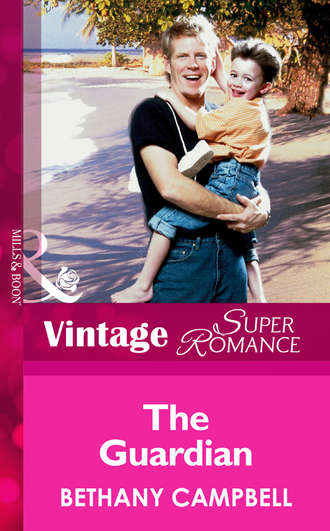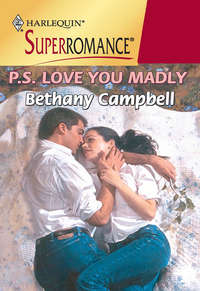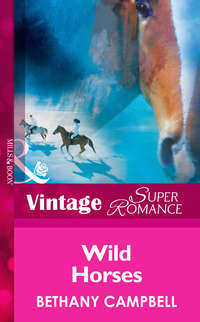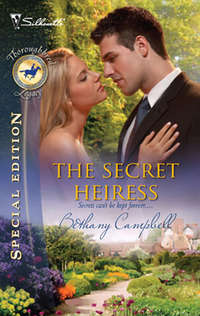
Полная версия
The Guardian
He inhaled deeply of the salt, humid air. He had spent much of his youth here, in this very house.
Now the house was decaying around him. He stared up at the featureless sky. Man-made dwellings were fragile in this climate; they took constant maintenance. Hawkshaw decided he was not good at maintaining things, at least the things that were supposed to belong to him.
He turned and looked at the lone light that shone from the farthest window. The woman had left the bathroom light on for the kid, a gesture that touched him in spite of himself.
Don’t be touched, he warned himself. Don’t feel anything. Don’t get involved.
The woman and kid had come into his life suddenly, and with luck they’d disappear just as suddenly. Until then, he’d watch out for them because they were a legacy from Corbett, a favor to be returned and a debt to be paid.
But nothing personal. Hawkshaw would stay uninvolved.
He had made it his specialty.
A RAGGED SCREAM WOKE KATE. In panic she raised herself on her elbow, staring about the strange room.
The morning’s first light poured between the curtains. Charlie slept in the bed next to hers, his brown hair dark against the white pillowcase. His breathing was even and deep.
Maybelline slept beside him, her squat body curled up against his legs. She opened one bloodshot eye, limply raised one ear. She sighed a doggy sigh.
The scream rent the air again, and Kate’s heart pounded in confused dismay. But Maybelline closed her eye, lowered her ear. Her body relaxed, and in the fraction of a moment, she snored.
The scream sounded again, this time farther away, and Kate thought, A seagull. That’s all. Seagulls make an awful sound like that.
It came back to her in a surreal rush that she and Charlie were somewhere in the Florida Keys. The realization jarred her, and she sank back against the pillow. She caught her lower lip between her teeth.
She and Charlie had arrived in Florida last night, and now they were hidden away with a friend of Corbett’s. And that friend was a tall, lean unfriendly man named Hawkshaw....
Her muscles stiffened at the recollection of Hawkshaw. Like Corbett, he had been in the Secret Service, and that, in truth, was almost all she knew about him.
She raised herself again on her elbow. She barely even knew where she and Charlie were, for God’s sake. She had better find out, because she was going to have to explain it all to Charlie. And prepare him for Hawkshaw.
The room was musty, and she thought she could smell the ocean—or was it the Gulf? Or both? She also imagined the aroma of coffee in the sultry air. Squinting at her watch, she saw that it was just after six; with luck Charlie should sleep for another hour.
She slid from bed, opened her suitcase and snatched up her toiletry case and a change of clothes. The face that stared back at her from the mirror startled her. She looked pale and uncertain of herself. She hated that uncertainty; it had once been so foreign to her.
She clambered into jeans and a pale-green T-shirt, put on her old running shoes, then slipped out of the bedroom, leaving the door open in case Charlie awoke. She cast a last, worried glance back at him, the dog still snoring by his side.
She padded down the hall. The living room looked as cluttered and disheveled as it had last night. Almost everything in it seemed dated, as if the contents had come from an era older than Hawkshaw’s own.
The kitchen was overcrowded, but she found a freshly brewed pot of coffee warming on the counter and a clean mug. She filled it and stepped to the front door.
She eased open the screen door and looked up and down the deck for Hawkshaw. Her heartbeat quickened as she saw him, sitting on a bench, hunched over a weathered picnic table. He had a manila folder open in front of him and seemed to be deep in study.
He sat in profile to her, a forelock of hair falling over his eyes. He wore olive drab shorts and that was all. The rest of him was as naked as the day God made him.
The morning sun was still mellow, and it spilled over on his shoulders, gleamed on the muscles of his back. His arms and legs were sinewed and bronzed, and she could see the tracery of veins that etched his biceps.
The azure-blue of the sky framed the sharp angles of his profile. He looked at ease with himself, as much a part of nature as an eagle or a stag might.
He did not look up at her, and not even his slightest motion betrayed that he knew she was there. But he said, “Hello, Katherine. Bring out your coffee and sit down. We have things to talk about. By the way, your socks don’t match.”
She blinked in surprise and her gaze fell involuntarily to her feet. On one foot was a navy-blue sock, on the other a black one.
Almost reluctantly she came to his side. She sat down on the bench as far from him as she could. He sipped at his coffee, but he didn’t look at her.
“How did you know I was there?” she demanded. “How did you know I had coffee? How did you know my socks don’t match? You never even saw me.”
“I saw you,” he said in his soft growl. “It’s my business to notice things. Or it was.”
He had shaved. The lean planes of his face were clean, and the scent of something piney hovered about him.
“How long did you say you and Corbett worked together?” she asked uneasily.
“Fourteen years,” he said.
He raised his eyes to hers. They were keen eyes, and for the first time she realized they also seemed intensely intelligent.
“But you don’t want to talk about me,” he said. “You want to talk about where you are. Right?”
“Exactly,” she said. “Charlie’s already confused about everything. Somehow I have to explain this to him.”
“Right,” he said, turning his gaze from her. He set down his coffee mug. From a stack of papers on the table’s corner he drew out a map.
He unfolded it and set it between them. “This chain of islands is the Lower Keys.”
He picked up a red pen. She noticed the long, jagged scar on his right arm. With the precision of an artist or an engineer, he circled the last island in the chain. “That’s Key West, where you landed.”
She nodded mechanically. A breeze sprang up. From the corner of her eye, she saw how it fluttered the lock of hair that fell over his forehead.
“We came up the one main road,” he said, tracing a line. “We’re here, Cobia Key. We’re at the edge of the heron sanctuary. More or less surrounded by mangrove islands. Like I say, we’re isolated.”
His gaze met hers again, and it seemed to her that it held a strange mixture of coolness, distance, and unwilling hunger. Uneasy, she turned her face from his and stared out at the dark tangle of the mangroves. “You’re alone here?” she asked.
“Yes,” he said in a tone that implied, And that’s how I like it.
She heard gulls crying in the distance, but she realized that this place was oddly still, almost hushed. The landscape did not seem tropical or exotic. Instead it seemed brooding, the mangrove forests full of mystery.
She had imagined Florida abloom with flowers and bright with colorfully plumaged birds. She had not envisioned these thick, low woods, deep with secrets. It was an alien atmosphere, and she took a drink of coffee to steel herself against it.
“What is this place?” she asked, giving the worn deck a critical glance.
“It used to be a guide service. Mostly kayak tours. Not anymore.”
She looked at him questioningly. “You bought this when—when you retired from the service?”
“I inherited it,” he said. “When my father died.”
“I’m sorry,” she said, although she could detect no sorrow, no grieving in him.
“It’s getting ready to fall down,” he said from between his teeth. He tapped the map with the pen again. “But that’s where you are. What’s left of Hawkshaw’s Island Adventures. In Nowhere, Florida.”
“Over there,” she said, nodding toward the patch of green-gray water glinting between the trees. “Is that the ocean?”
“No. Just a channel.”
Unexpectedly he stood. The tattered shorts rode low on his hips. He handed her the map, his hand brushing hers. She found that the touch made her draw in her breath.
“Look,” he said. “I’m not much of a host. I’m out of practice. But can I get you something to eat?” he asked. “More coffee?”
“No,” she said hastily. “I’m fine. But Charlie will probably be hungry. I wish I’d thought last night to ask you to stop, to let me buy a few things.”
“It’s okay,” he said. “I put in plenty of supplies.”
Seeming restless, he moved to the edge of the deck and put his bare foot on the lower railing. He stared out over the trees.
“It’s going to get hot,” he said quietly. “Really hot. Can you feel it?”
CHAPTER THREE
THE BREEZE CHANGED DIRECTION, making the mangroves drone and sigh as if whispering ancient riddles.
Hawkshaw leaned his elbows on the top railing, not looking at her. The sun made his bare back and shoulders gleam like copper.
“So,” he said, “let’s talk about this mystery man, this stalker.”
Her stomach tightened. “I should go see if Charlie’s ready to wake up.”
“In a minute,” Hawkshaw said. “This guy—he’s been harassing you for a year and a half, right?”
“Yes.” And he’s brought me to this, she thought fatalistically. To depending on the kindness of strangers.
“You have no idea who he is?”
“None.” The word was a knot of gall in her throat. Suddenly, her future loomed before her with all its unspeakable uncertainty.
She was not even sure about her past. Was the stalker someone she knew? She had come to suspect, at one time or another, almost every man she knew.
Hawkshaw turned, almost lazily. He leaned back, his elbows resting on the railing. “So you went to Corbett.”
“I had to do something,” she said with a surge of spirit. “The police couldn’t help. I had to fight back someway.”
“You knew Corbett from before,” he said.
“Only in passing. His office—his and his partner’s—is in the same building as the bookstore. I checked him out. I heard his qualifications were excellent.”
“They are. Frankly, I’m amazed he hasn’t been able to ID this guy.”
She shook her head in frustration. “Every time he thinks he has a lead, it melts, turns into air. It’s like chasing a ghost.”
She knew that Corbett was good. But the stalker was better. Corbett had followed half a hundred clues and hunches, but they’d led only to half a hundred nowheres.
On Corbett’s advice, Kate had changed her phone number six times. She would have changed where she lived, but she could not find a buyer for the condo. She’d come to fear it would not matter if she did. The stalker would always find her, it seemed. She was stymied. So was Corbett.
Now, she who had prided herself on being so independent was on the run. By the harsh light of morning, it seemed an extraordinary and frantic move.
“You told nobody you were leaving Columbia?” he asked.
“Nobody,” she said. “Except my friend in Denver. I said we’d be coming soon. But I didn’t tell her where we’d be until then. I didn’t know myself.”
“And Corbett told nobody,” he said. “Not even his partner?”
“Not even him,” Kate said. She liked Corbett, but not his partner, Bedlingham. Bedlingham was married but flirtatious; to her it seemed he always exuded an air of sly, forbidden sexuality.
“And Corbett’s checked out the men closest to you?”
“Yes,” she said, although there weren’t that many.
George Chandler, her husband’s stepfather. George lived in the city, but he and Chuck had fallen out years ago. They had not socialized, had hardly spoken to each other.
There was Chuck’s brother, Trevor. Trevor lived in Minneapolis, where he was confined to his house because of multiple allergies and never went out. She communicated with him mostly by e-mail because it was cheaper than phoning. She felt guilty, for she had lied to him about what she was doing. She had told him she was taking the computer in for repair and would be out of touch.
And there was her former boss, the bookstore owner, Winston McPhee. McPhee was a kind, fatherly man who’d promised he’d take her back when it could be done. But the stalker had made McPhee’s life hellish with jealous calls day and night, and he’d disrupted the business until Kate knew she had to leave.
“Your father-in-law,” Hawkshaw said. “Your brother-in-law. Your former employer. Corbett’s checked them out. And they seem clean?”
“Yes,” she said, ashamed because at one time she’d suspected each of them. But she had come to look on every man she met with suspicion these days. It was a tense, terrible way to live.
“Corbett says it could be somebody I don’t know at all,” she said. “Or somebody I’ve known for years.”
Her gaze drifted to the picnic table. The breeze rustled the papers in a file folder that lay open next to a black ball cap.
With an unpleasant shock, she recognized the top page—a copy of one of the stalker’s notes. She knew those hideous notes by heart.
This one said,
I SAW YOU TODAY. YOU WERE WEARING YOUR GREEN PANTSUIT AND BLACK JACKET. IN MY MIND I TOOK OFF YOUR CLOTHES. I WANTED YOU SO MUCH IT WAS LIKE POISON IN MY VEINS. I IMAGINED YOU NAKED AND KNEELING BEFORE ME. THIS IS WHAT YOU DID—
She realized that Hawkshaw had read these filthy notes, and her face blazed with shame. Hastily she rose from the bench.
“I’d better go see about Charlie,” she said. “If he wakes up in a strange room...”
“If he wakes up in a strange room, what?”
“He’ll be upset. Charlie has—a few problems. He has an attention deficiency.”
She nodded, rather bitterly, toward the papers on the table. “Corbett seems to have told you everything else. Didn’t he tell you that?”
“It’s no big deal.”
“Maybe not to you,” she said defensively. “But it makes it harder for him to adjust to change than it is for most children. He doesn’t understand any of this—”
Hawkshaw shrugged one shoulder, as if what she said didn’t matter. “He’ll have breathing space here.”
He obviously didn’t understand, didn’t want to. “Listen,” she said, her voice brittle, “I’m not asking any favors for myself. But you might show a little sympathy for Charlie. He’s only a child, he has special needs, this is a horrible situation.”
“I happen,” he said coolly, “to be rather good with kids.”
I’ll bet, she thought. I’ll just bet.
The breeze tossed Hawkshaw’s hair, flapped the worn cloth of his shorts. He crossed his arms across his chest. He tilted his head in the direction of the stalker’s notes.
“Katherine,” he said, “you think I haven’t seen letters like that before? I have. Plenty of them. You can stop blushing.”
She didn’t want to hear more. She turned and took refuge in the quiet of his strange, disordered house.
CHARLIE’S EYES FLUSTERED open, struggled to focus. Mama leaned over him, smiling. An instant uneasiness swept over him.
These days Mama’s smile was different than it used to be, it no longer seemed real or alive. The smile was like a mask. Charlie could not explain this, he only knew it was true.
“We’re here, Charlie,” Mama said. Her voice was cheerful, but her eyes weren’t. “We’re in Florida. We got here last night. You were asleep—”
Charlie sat up, frowning and rubbing his eyes. She had told him yesterday they had to go to Florida, she had showed him meaningless shapes on a map, she had said a lot of words. Now she was saying them again.
You’re in Florida.
Florida seemed to be a room that was little and not very nice and smelled funny. He didn’t like it. He wanted to go home.
He rubbed his eyes harder, till he saw colored sparks whirl and swoop across his vision. Then he stopped. Warily he opened his eyes again.
Florida was still there, the whole room of it. And the scary thing about Florida was that it was different from all he knew. His bed was not really his bed. The walls were not his walls, the window not his window.
“This house belongs to a man named Mr. Hawkshaw,” Mama said. “Mr. Hawkshaw’s a friend of Mr. Corbett. You remember Mr. Corbett? He drove us to the airport—”
The mask of Mama’s bright smile made Charlie feel something was badly wrong. Her words beat against his ears the way moths beat against a screen at night. Like moths, the words wanted in, but they couldn’t get in.
Charlie stared at the curtains as if hypnotized. They were not his real curtains with the pictures of the Star Wars people on them. These curtains were ugly-brown with blue-and-white fishes on them. The fishes had little blue dots for eyes.
Mama was still talking, her words softly going bat, bat, bat. She had him up, leading him to a bathroom that was not his real bathroom. Her words couldn’t get inside his head. He was too busy looking at all the different things, all the wrong things, all the Florida things, in this bathroom.
The wallpaper was enough to make him dizzy. There were more fishes on it, silly pink-and-yellow fish on a watery green background. He felt as if he were underwater, that Florida had turned him into a fish-boy.
“Hello,” he called in his mind to the other fish. “Hello, I’m a boy who’s trapped here. How do I get back home?”
“Swim, you must swim very hard,” said a pale-yellow fish. “You must swim with all your might. ”
“Charlie, stand still!” Mama ordered. “Just brush your teeth.”
“I’m swimming home,” Charlie said around his toothbrush. His arms made wild windmill motions, as if he were swimming at a heroic pace.
He imagined he was friends with all the fish. He began to sing “Under the Sea.” He imagined himself singing and dancing with all the fish and a big red lobster and pretty little mermaids.
His mother told him to quiet down, but her words were only more moths flying airily around his head. “Under the sea,” he sang and did a fancy fish-dance step. “Under the se-e-a—”
Mama said something about breakfast. She pulled a clean shirt down over his head.
Help! thought Charlie. I can’t see! I can’t breathe! Mama’s a sea witch! She’s put me in a bag!
But he sputtered out of the neck hole of his shirt, safe again. “To the kitchen—” said Mama, opening the door into a hallway. From the first look, he didn’t like this hallway. It was long and narrow and different—it was more of nasty Florida.
But fat old Maybelline was up now, and she wanted out. She waddled down the hallway, her short regs chugging, her ears nearly trailing on the ground.
Charlie the fish-boy swam behind her, his arms churning again. “Glub,” he said. “Glub-glub.” He pretended Maybelline was a squid and that he was following her.
Then he was out of the sea and into a living room, and wow, it wasn’t his living room, it was really different—not all neat like Mama kept their place, and there was stuff everywhere!
He stopped to gape. His mind spun, trying to take it all in as his eyes danced from one object to another. Such a wealth of things! A cascade of things—fishing poles, a net with a handle, a tackle box, an oar, hooks, bobbers, flies, weights, a hundred things that he had no names for.
“Cool!” Charlie breathed. He felt dizzy with wonder. He looked up at a big fish stuffed and mounted on a wall. Was it a shark? It was, it was a shark, he was sure of it—what a paradise of stuff.
“Way cool!”
He reached toward a fishing pole, the biggest fishing pole he’d ever seen. Surely such a pole was used to catch whales!
“Charlie, don’t,” his mother warned, pulling his hand back. “That’s Mr. Hawkshaw’s. Come on. Let’s take Maybelline outside. Then we’ll find some breakfast.”
But Charlie couldn’t help himself. He picked up a colorful fishing lure with all sorts of bright mirror-things glittering on it. It had red plastic tentacles like an octopus—it even had little eyes!
“Charlie!” his mother said sternly.
But the lure was too wonderful, and he was turning it over and over until it bit him—
“Yow!” Charlie sprang back, dropping the lure. A bright drop of blood welled at the tip of his thumb. “I’m stabbed!” he cried. “I been stabbed by an octopus!”
“You should mind your mother, kid,” said a man’s voice.
Something in that voice paralyzed Charlie. A lion-voice , he thought wildly. I hear a lion-voice.
He turned and saw a big, tall man standing in the doorway. This man looked like a superhero to Charlie, except he was dressed strangely. All he wore were shorts and a black baseball cap. His skin was tawny-brown all over, like a lion’s. Charlie stared up at this wondrous being.
“Charlie, now you’ve hurt yourself,” his mother said, but he barely heard her. He was too busy looking at the superhero.
“Let me see your hand,” Mama fussed, but the words fluttered in confusion at his ears. They didn’t really register. He shook off Mama’s questing hand.
“Let’s see, Charlie,” the tall man said, kneeling beside him. He took Charlie by the hand and squinted at the bleeding thumb.
“I was bit by an octopus,” Charlie said, hoping to impress him. “Maybe I’ll die of octopus poison.”
“I doubt it,” said the man. “Come over to the sink. We’ll wash it and put on some antiseptic.”
“It hurts,” Charlie said, “but I’m not crying. See?” He pointed at his tearless eyes.
“I see,” said the tall man, rising to his feet. He was so tall his head seemed to almost touch the ceiling. He kept hold of Charlie’s hand and led him to the cluttered sink.
“Wow,” Charlie breathed, looking up at him. “Maybe I’ll have a big, massive scar.”
“Maybe,” said the man, running cold water on the stinging thumb. “You should have minded your mother.”
Charlie ignored the advice. He also ignored his mother, who stood by with an oddly disapproving look on her face. He would fix her for bringing him to this old Florida. He’d fix her by liking the tall man better than he liked her—so there.
“Who are you?” Charlie asked. “How come you don’t got no shirt?”
“Don’t have any shirt,” his mother corrected, but he hardly noticed.
“My name’s Hawkshaw,” said the man. “I don’t have a shirt because I don’t need one. This is the Florida Keys. It’s warm all year.”
“Then why do you have a hat?” Charlie asked.
“To keep the sun out of my eyes,” said the man, picking up the antiseptic. “Hold still. This is going to hurt.”
“I won’t cry,” Charlie vowed, but the smarting of the medicine made him dance in place.
“Charlie,” his mother asked, “do you need a bandage on your thumb?”
Charlie didn’t answer. He just gazed up, up, up at Hawkshaw. Hawkshaw, it was a good name, he thought. Like Batman. Or Rambo. Or Han Solo.
Hawkshaw’s cap was black with white letters. “What’s your hat say?” he demanded.
“I don’t think he needs a Band-Aid,” Hawkshaw told Mama. To Charlie he said, “It says United States Secret Service.”
Charlie’s eyes widened. “Secret Service? Like the guys who guard the president?”
“Yeah,” Hawkshaw said in the purr-growl of his lion’s voice. “Like that.”
Charlie was swept up by excitement. “Are you in the Secret Service?”
“I was,” Hawkshaw said easily. “What say we take this dog out? She’s standing cross-legged, she has to pee so bad.”
Charlie saw his mother leading the dog outside, but the fact hardly registered. He was too rapt with admiration. “Did you have a gun and everything?”
“A gun and everything,” Hawkshaw said. “Come on. Your mother’s doing all the work.” He headed for the door and Charlie followed as if fastened to him by a string.
“Did you ever guard the president?” Charlie asked in awe.
“Sometimes,” Hawkshaw said. “Mostly I guarded other people.”
“Did you ever shoot anybody?” Charlie asked hopefully. “Did anybody ever shoot you?”
Hawkshaw’s lean face seemed to grow leaner, starker and sterner. “Outside, kid,” he ordered, holding the door.









